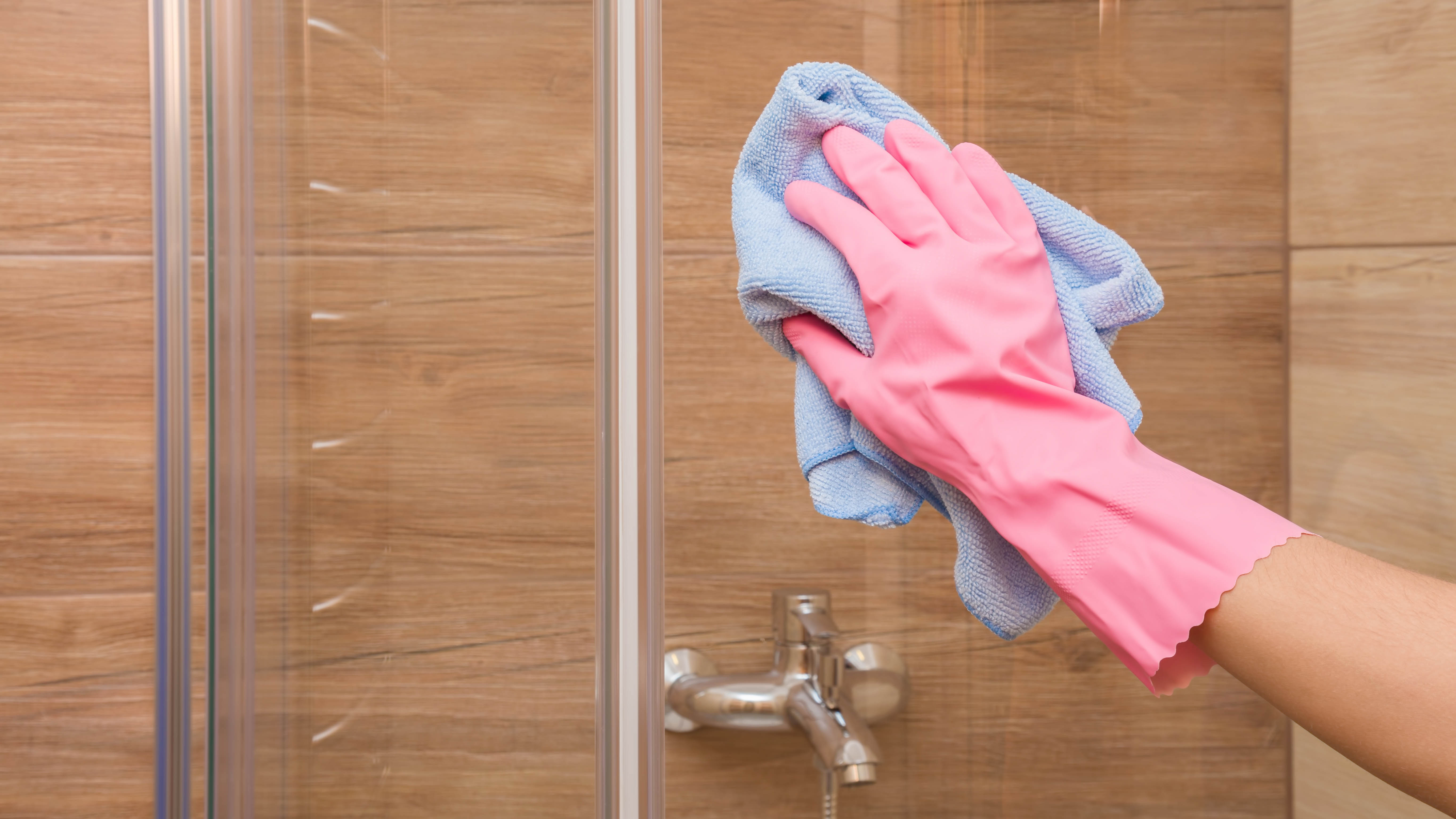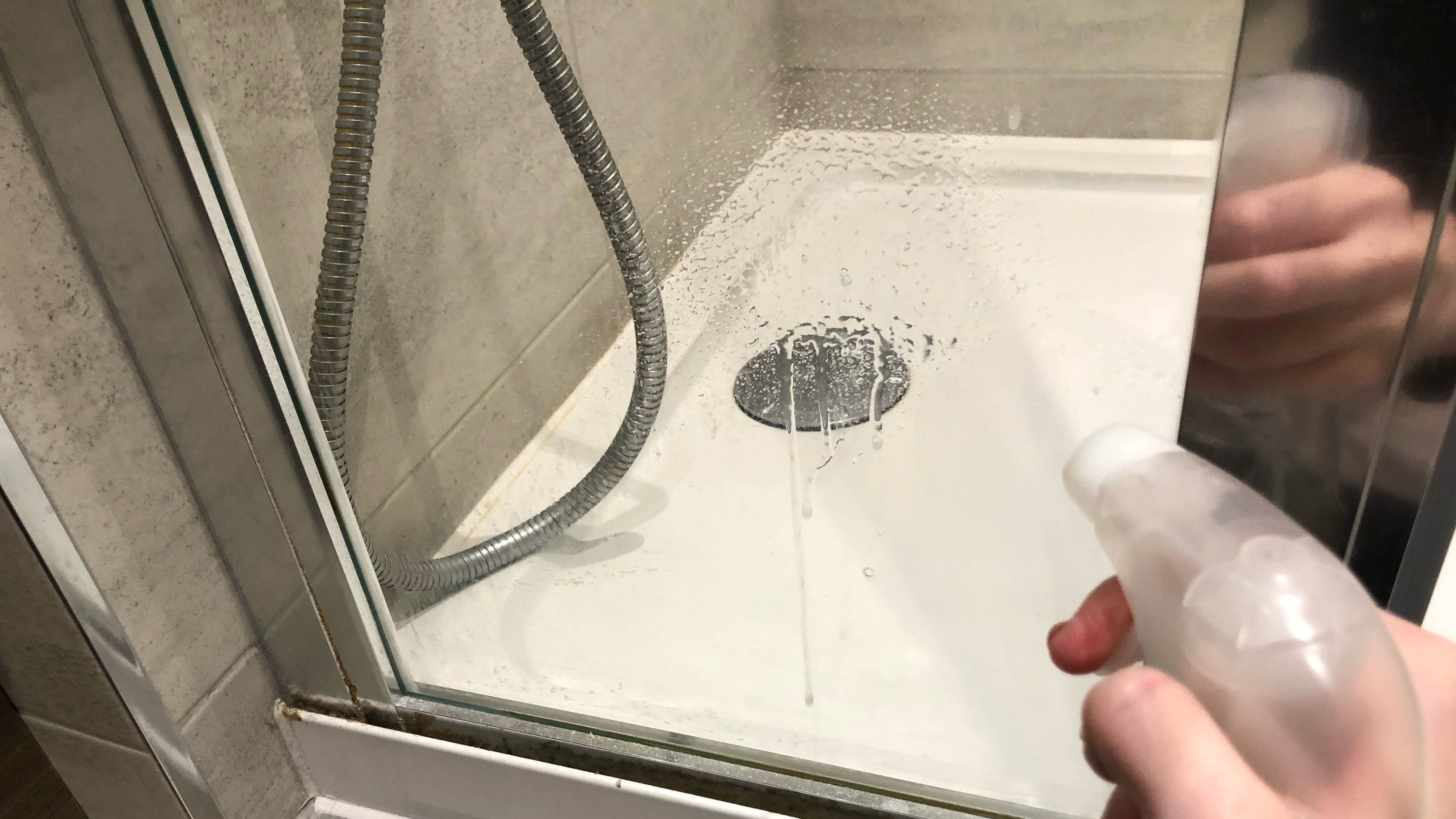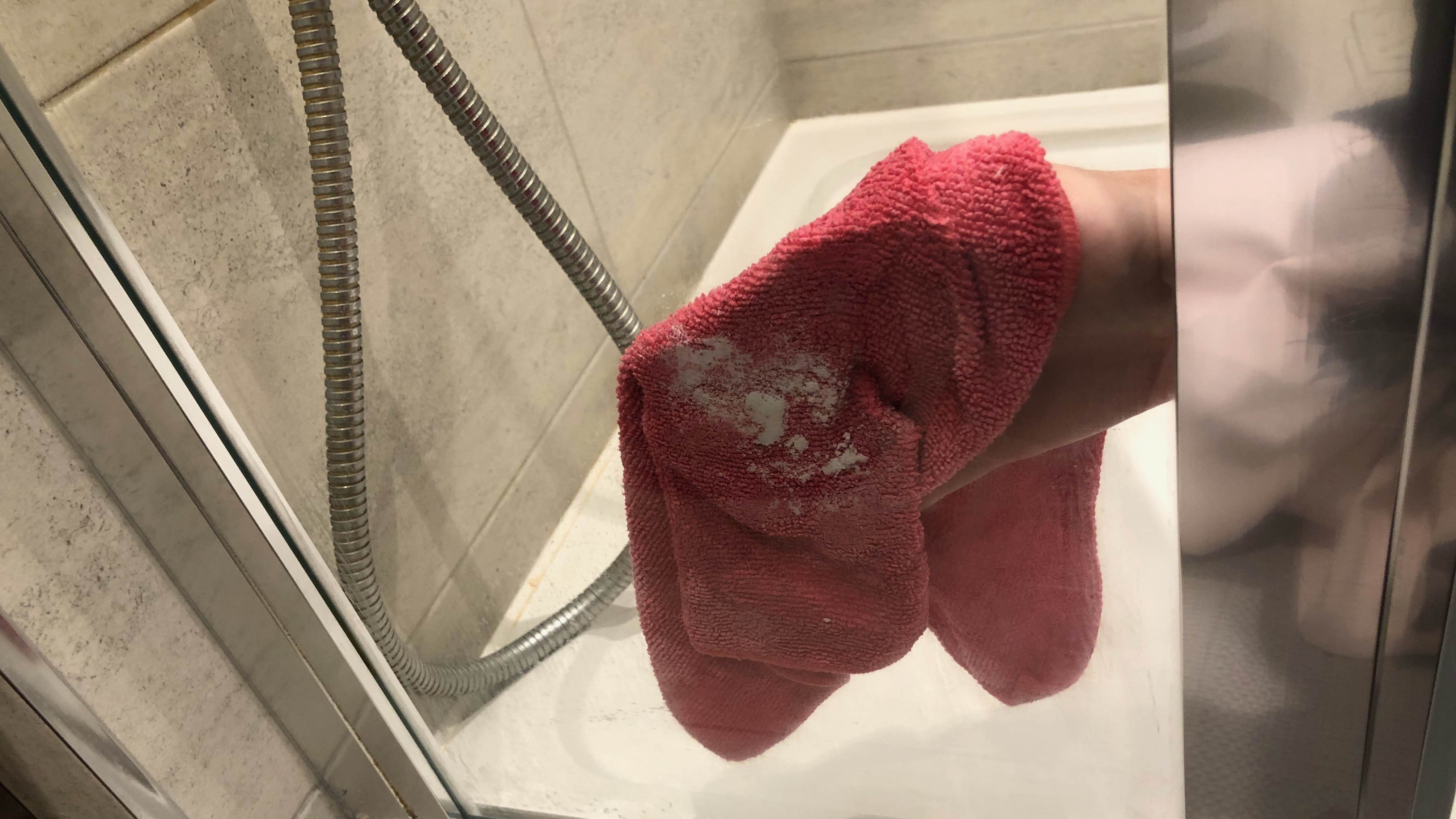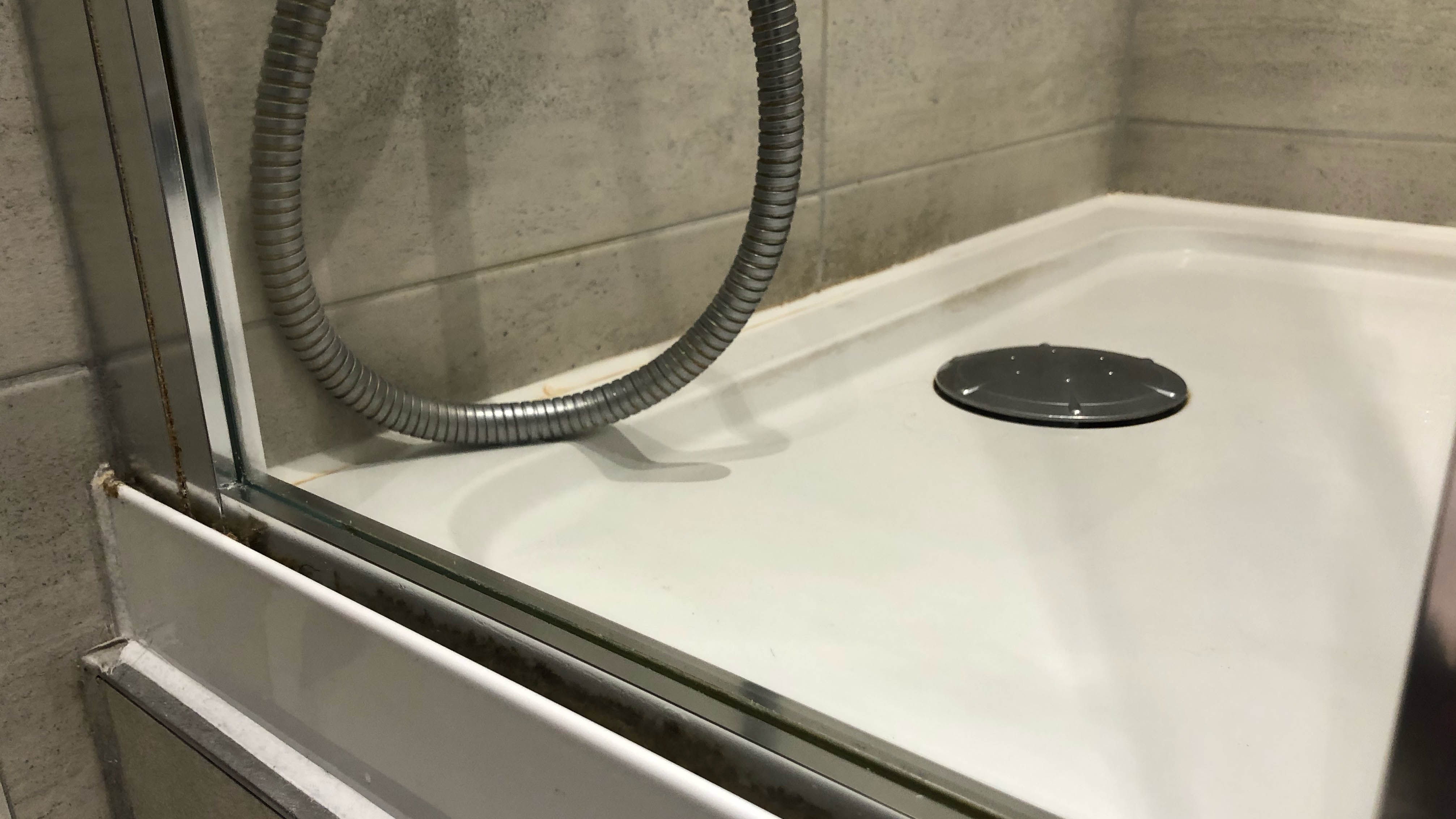How to clean a glass shower door — top tips to remove water marks
Make your glass shower door gleam with these tips

Knowing how to clean a glass shower door will keep your bathroom looking pristine. Shower doors can quickly be marred by unsightly water marks from everyday use. As residual water dries on the surface, it leaves behind white calcium carbonate deposits. Ventilating and wiping out the shower promptly can stop these marks from forming, but even with great care, some will always slip through. And once they do, they’re a real nuisance to remove.
It’s not as simple as learning how to clean a shower curtain; you need the right cleaners and some elbow grease to get this job done. If you want step-by-step guidance, we’ve listed the best ways to remove limescale from glass shower doors below, answering any questions you might have along the way, including how to prevent these marks in the future.
For more tips, check out how to clean a bathtub and how to clean a shower head.
How to clean a glass shower door with vinegar
White distilled vinegar OR baking soda
Dish soap (optional)
Empty spray bottle
Non-scratch sponge (optional)
Microfiber cloths
1. Fill an empty spray bottle with half water and half white distilled vinegar. Make sure you use white and not malt vinegar — malt will work just as well, but you won’t be thankful for the smell. If you’re dealing with a lot of soap scum on the glass, you can also add some dish soap to help cut through the grease.
2. Screw the lid on tight and shake to combine.
3. Spray liberally on your shower door, working your way from top to bottom. This vinegar solution will smell, so it’s a good idea to leave a window or the door open to your bathroom.

4. For everyday limescale, you can wipe the solution away immediately with a damp microfiber cloth.
Sign up to get the BEST of Tom's Guide direct to your inbox.
Get instant access to breaking news, the hottest reviews, great deals and helpful tips.
5. For tougher limescale, you should leave the solution to sit for a few minutes and then gently scrub using the scouring side of a non-scratch sponge. You might need to re-apply, and it might take some elbow grease, but you should notice the water marks start to disappear.
6. Once the glass is clean, rinse, dry and buff with a clean microfiber cloth.
How to clean a glass shower door with baking soda
1. Alternatively, if you have baking soda, you can use this instead. As a natural abrasive, baking soda is ideal for removing limescale. Dampen a microfiber cloth, tip some baking soda onto the cloth and scrub directly on the glass in a circular motion.

2. Then simply wipe away with a clean microfiber cloth and rinse the residue away.
3. For stubborn limescale, you can use the scouring side of a non-scratch damp sponge to apply the baking soda.
4. Again, make sure the glass is rinsed and dried afterwards to prevent more limescale from forming.
Note: Baking soda is said to be abrasive enough to scratch glass, however we didn't experience this for ourselves. If you're concerned about scratches, use a different cleaning method.
Your shower door should now be gleaming again. Here are some tips to keep it looking great.

How to prevent water marks on your shower door
- Make use of a squeegee — Squeegees are mega-convenient when it comes to wiping out the shower. Simply swipe from top to bottom on the glass as well as the tiles, and the majority of the water will be removed. You can wipe the blade with a towel between swipes to soak up some of the excess too. These are relatively cheap, an example being the OXO Good Grips All-Purpose Squeegee ($9, Amazon). You could opt for a window vacuum instead, but these are much more expensive and slow to use in our experience.
- Dry the shower with a towel — Even if you’ve used a squeegee, it’s a good idea to buff the glass with a dry towel to pick up any residual moisture. Don’t forget to reach into any corners and crevices, as well as dry any products you keep in the shower between uses. Bottles can easily leave rings of limescale behind.
- Leave a window open — If your bathroom has a window, make sure you open it up to ventilate the space after you shower. This will remove any moisture from the atmosphere as well as evaporate any final droplets. If there’s no window, open up the doors and make sure you switch on the exhaust fan.
- Take advantage of a daily shower cleaner — These cleaners should be spritzed over your shower’s surfaces once you’ve finished showering. They’re designed to prevent limescale and mildew from building up. An example of this would be this Daley Mint Towel + 2 Daily Shower Bathroom Cleaners ($19, Amazon). Keep in mind, these prevent such stains from forming — they’re not technically cleaners.
- Avoid hanging towels over the glass — You’ve just dried the glass, so why hang a damp towel over it? In doing this, you’re exposing the glass to residual moisture, which will promote limescale. Plus, your towels won’t dry so quickly with such limited air circulation. Hang towels to dry on a dedicated towel rail instead.
For other cleaning tips, check out how to clean your shower curtain to make it look brand new, as well as how to clean grout on floor tiles to get rid of stains, how to clean every room of your home, and I tried Karcher's cordless window vac and it cleans more than glass.

As the Homes Content Editor, Cynthia Lawrence covers all things homes, interior decorating, and garden-related. She has a wealth of editorial experience testing the latest, ‘must-have’ home appliances, writing buying guides and the handy ‘how to’ features.
Her work has been published in various titles including, T3, Top Ten Reviews, Ideal Home, Real Homes, Livingetc. and House Beautiful, amongst many.
With a rather unhealthy obsession for all things homes and interiors, she also has an interior design blog for style inspiration and savvy storage solutions (get rid of that clutter!). When she’s not testing cool products, she’ll be searching online for more decor ideas to spruce up her family home or looking for a great bargain!
